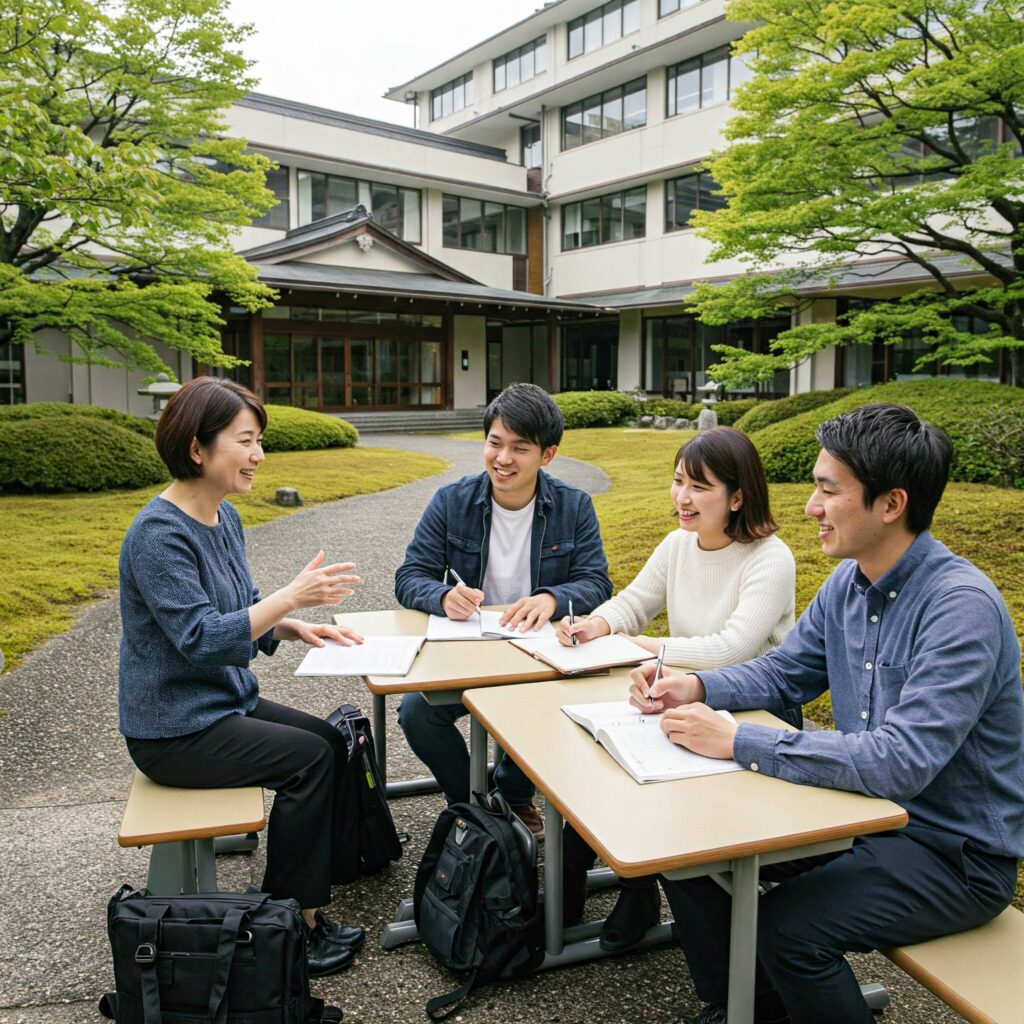Kyoto Komore International Institute has taken a decisive step forward in transforming the educational landscape of Japan by launching an ambitious, institution-wide initiative centred on microcredentials and skills-based learning. This move aligns the Institute with global leaders in higher education who are responding to the rapid evolution of workforce demands and the growing need for flexible, modular learning pathways.
Microcredentials: The New Currency of Employability
The Institute’s new microcredential framework is designed to empower students from high school through to postgraduate levels with tangible, industry-relevant skills. Microcredentials—short, focused courses that certify mastery of specific competencies—are now embedded across the curriculum. This approach reflects a global trend, as top institutions worldwide increasingly recognise that traditional degree structures alone cannot keep pace with the changing requirements of employers and the dynamic nature of modern careers23.
Each microcredential at Kyoto Komore International Institute is co-developed with leading industry partners and professional bodies. For example, students in the Information Technology stream can now earn certifications recognised by global technology leaders, while those in business and management programmes have access to credentials co-designed with international business associations. This ensures that graduates possess not only academic knowledge but also the practical expertise demanded by employers in Japan and abroad3.
Holistic Integration Across Academic Levels
A defining feature of the Institute’s approach is the seamless integration of microcredentials into the educational journey, from secondary education through to advanced research. High school students are introduced to foundational skills such as digital literacy, communication, and problem-solving, earning stackable microcredentials that can be carried forward into undergraduate studies.
At the undergraduate level, students engage in interdisciplinary microcredential modules that complement their major fields of study. For instance, an engineering student might pursue microcredentials in project management or entrepreneurship, while a humanities student could gain certification in data analysis or intercultural communication. This modularity enables learners to customise their academic experience, fostering both depth in their chosen discipline and breadth across emerging fields.
Postgraduate students benefit from advanced microcredentials linked to research skills, leadership, and innovation. These offerings are designed in close collaboration with research centres and industry partners, ensuring that graduates are equipped to lead in both academic and professional settings.
Innovative Assessment and Real-Time Feedback
To support the rapid pace and practical focus of microcredential courses, Kyoto Komore International Institute has adopted innovative assessment methods. Digital platforms enable instructors to provide real-time, personalised feedback on student performance, allowing for immediate reflection and improvement. This system is particularly effective for skills-based learning, where timely feedback is critical to mastery23.
The Institute also utilises peer assessment and collaborative projects, encouraging students to learn from one another and to develop the teamwork and communication skills essential for success in today’s workplace. These micro-level interactions, often overlooked in traditional education models, are now central to the student experience.
Bridging Academia and Industry
A core strength of the Institute’s microcredential strategy is its close partnership with industry. Advisory boards comprising representatives from leading companies, start-ups, and professional associations regularly review and update the content of microcredential programmes. This ensures that the skills taught are always relevant and that graduates are prepared to enter high-growth sectors such as technology, healthcare, and sustainable development35.
Furthermore, students have access to industry-sponsored workshops, mentorship programmes, and internship opportunities linked directly to their microcredential achievements. These experiences provide invaluable exposure to real-world challenges and help students build professional networks before graduation.
Supporting Equity and Lifelong Learning
Recognising that access to skills-based education is a key driver of social mobility, Kyoto Komore International Institute has implemented a range of support measures to ensure all students can participate in microcredential programmes. Scholarships, flexible scheduling, and online delivery options are available to accommodate diverse learning needs and life circumstances.
The Institute’s commitment to lifelong learning extends beyond current students. Alumni and working professionals can enrol in microcredential courses to upskill or reskill in response to changing career demands. This open-access model reflects the Institute’s belief that education should be continuous and responsive to the needs of individuals at every stage of life2.
Measuring Impact: Data-Driven Success
The success of the microcredential initiative is tracked through a robust set of metrics, including student satisfaction, employment outcomes, and employer feedback. Early data indicate a marked increase in graduate employability and student engagement, mirroring trends observed at leading global institutions23.
Regular feedback loops with students and industry partners inform ongoing improvements, ensuring the programme remains agile and effective. The Institute’s research teams are also conducting longitudinal studies to assess the long-term impact of microcredentials on career progression and personal development.
A Blueprint for the Future of Education
Kyoto Komore International Institute’s microcredential and skills-based learning initiative sets a new standard for comprehensive, future-focused education in Japan. By embedding industry-aligned, modular learning opportunities throughout the academic journey, the Institute is preparing graduates to thrive in a world where adaptability, practical expertise, and lifelong learning are paramount.
This pioneering approach not only enhances the employability and confidence of students but also positions the Institute as a leader in educational innovation. As the global landscape continues to evolve, Kyoto Komore International Institute remains committed to equipping its students with the skills, knowledge, and mindset required to shape the future.

Leave a Reply